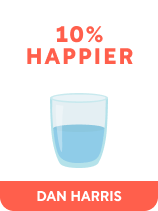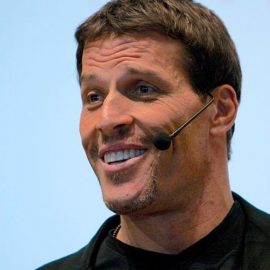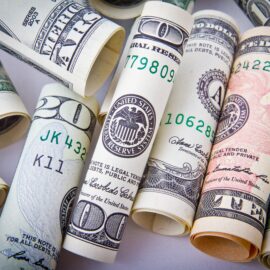

This article is an excerpt from the Shortform book guide to "10% Happier" by Dan Harris. Shortform has the world's best summaries and analyses of books you should be reading.
Like this article? Sign up for a free trial here .
What are the worst self-help books, according to self-help author Dan Harris? What makes these books so unhelpful?
As Dan Harris navigated the world of self-help, he encountered a few popular self-help gurus. Given his unique position as a journalist, he was often able to interview them. He admits that some of their ideas resonated with him and his understanding of mindfulness, but he found it difficult to fully embrace each guru’s ideology.
We’ll talk about three of these gurus: Eckhart Tolle, Deepak Chopra, and Tara Brach.
Eckhart Tolle
The first on Harris’s list of worst self-help books are books by Eckhart Tolle. Although Tolle was Harris’s introduction to the world of self-help. After reading one of Tolle’s books, Harris discovered the concepts of the ego and mindfully living in the present moment, ideas that resonated with him.
However, Harris says that due to the lack of practical application in Tolle’s writing, Harris struggled to use these ideas in his everyday life and career. For example, he disagreed with Tolle’s assertion that a person should never get angry and that everyone should learn to emotionally accept events that happen to them. Harris still saw the benefit of being attached to some thoughts that were based in reality, rather than passively accepting every moment. Harris also couldn’t reconcile Tolle’s insights on mindfulness with his pseudoscientific claims on energy fields and his grandiose promises of transformation.
| Ego, Emotions, and Eckhart Tolle Harris explains that while some elements of Tolle’s philosophy (in regards to mindfulness and ego) were helpful, he was skeptical of what he describes as Tolle’s pseudoscientific claims. He doesn’t expand on the details of these pseudoscientific claims, but other readers have echoed Harris’s criticism of these claims and have gone into further detail. For example, Tolle’s views on emotions and pain-bodies have been criticized for their lack of scientific evidence. According to Tolle, emotions are your body’s physical reactions to thoughts. He believes that emotions—not just thoughts—are the products of our ego and that negative emotions interrupt the flow of energy through the body, causing ailments like heart and digestive problems. This disruption of someone’s “energy field” forms what he calls a pain-body. He also states that individual pain-bodies can group together into a bigger pain-body. So nations, races, and cultures can all develop their own collective pain-bodies, which he says you can feel as soon as you step foot in a given country. Therefore, he believes that fixing our inner worlds and pain-bodies will solve the systemic problems the world faces. |
Deepak Chopra
Harris describes how not long after his conversation with Tolle, he interviewed Deepak Chopra, a celebrity guru and author of numerous self-help books. Harris recognized that Chopra had similar views on mindfulness as Tolle. Harris wanted to fill the gaps he’d found in Tolle’s philosophy, and he thought Chopra might be able to answer the questions he had, particularly about living a life with passion and ambition while also quieting his ego. Harris wondered if it was possible to have both.
Chopra’s version of mindfulness looked very different from Tolle’s calm, stoic demeanor. Harris explains that Chopra was loud, energetic, and focused on his public image, which Harris thought was contradictory to Chopra’s claims of mindfulness and separation from feeling. Chopra claimed that his boisterous nature wasn’t in conflict with mindfulness since he could separate himself from these feelings. In fact, he believed engagement and energy were necessary for a good life. This encouraged Harris, but he also questioned how genuine Chopra was, since he didn’t ever seem to be mindfully present.
Harris was wary of Chopra’s pop-culture style of self-help and million-dollar business, which seemed to Harris like something that would feed an ego. Harris was also put off by Chopra’s ideas about transcendental experiences and his lack of actionable advice on achieving balance between passion and mindfulness.
| Context on Deepak Chopra Chopra is an alternative medicine advocate and popular figure in the New Age movement, which was a spiritual movement in the 1970s and ‘80s that sought to align the mind, body, and soul. Chopra’s most popular book is The Seven Spiritual Laws of Success, which describes how we can succeed when we understand the essence of being human and the laws of nature. He advises people to meditate twice a day, to give gifts to others, and to practice detachment and acceptance. He also believes in karma, or that the energy of your actions will generate a response with the same energy. So by doing something kind for someone, you will be met with kindness in return. Additionally, Chopra believes in “quantum healing,” or the idea that foundations of physics govern our health. He believes we can reach “perfect health,” where we don’t feel pain and never fall ill, by harnessing the energy of the world around us. This idea is controversial for its misinterpretations of modern physics, and it has elicited criticism from the scientific community for its pseudoscientific claims. |
Tara Brach
At a Buddhist conference (that he felt embarrassed to attend—a symptom of his continued cynicism of self-help programs), Harris describes hearing Tara Brach speak about loving and accepting yourself as you are. He found her speech off-putting because he didn’t like her appeals to emotions or her overly-poetic language. He also disagreed with her ideas of accepting yourself—even your flaws—completely.
Despite the fact that Harris didn’t find much useful insight in Brach’s discussions, he did find one of her ideas helpful. She presented a technique that he found helpful in applying mindfulness in everyday situations (this is the RAIN technique, which we’ll discuss in more detail later in the guide).
| Context on Tara Brach While Harris eventually agreed with versions of Brach’s principles, he may have been hearing her message too early in his journey. The content of her message (about mindfulness) may actually have appealed to Harris, but the way she presented this information or his biases about her may have been why her philosophy didn’t resonate with him. Her message focuses on compassion for ourselves, a concept that Harris doesn’t embrace until the end of his journey (as we’ll discuss later). Brach is an author, psychologist, and Buddhist. In Radical Acceptance, Brach argues that we get trapped in our narratives, feel unworthy, and strive for unreasonable ideals of perfection. To combat this, Brach describes radical acceptance as a type of meditation that focuses on acknowledging and accepting what we experience—both positive and negative. Radical acceptance can lead to emotional healing and feeling compassion for ourselves and others. Radical acceptance has two components: mindfulness and compassion. Mindfulness allows us to realize what’s going on around us and how we feel about it, and compassion lets us respond to it with care. For example, using mindfulness, we understand that we’re irritable from hunger. Using compassion, we accept our irritability and hunger without judgment. |

———End of Preview———
Like what you just read? Read the rest of the world's best book summary and analysis of Dan Harris's "10% Happier" at Shortform .
Here's what you'll find in our full 10% Happier summary :
- A skeptic’s journey through the world of self-help
- How to control your anxiety, manage your ego, and become more compassionate
- How you can improve your life and career—even by just 10%






